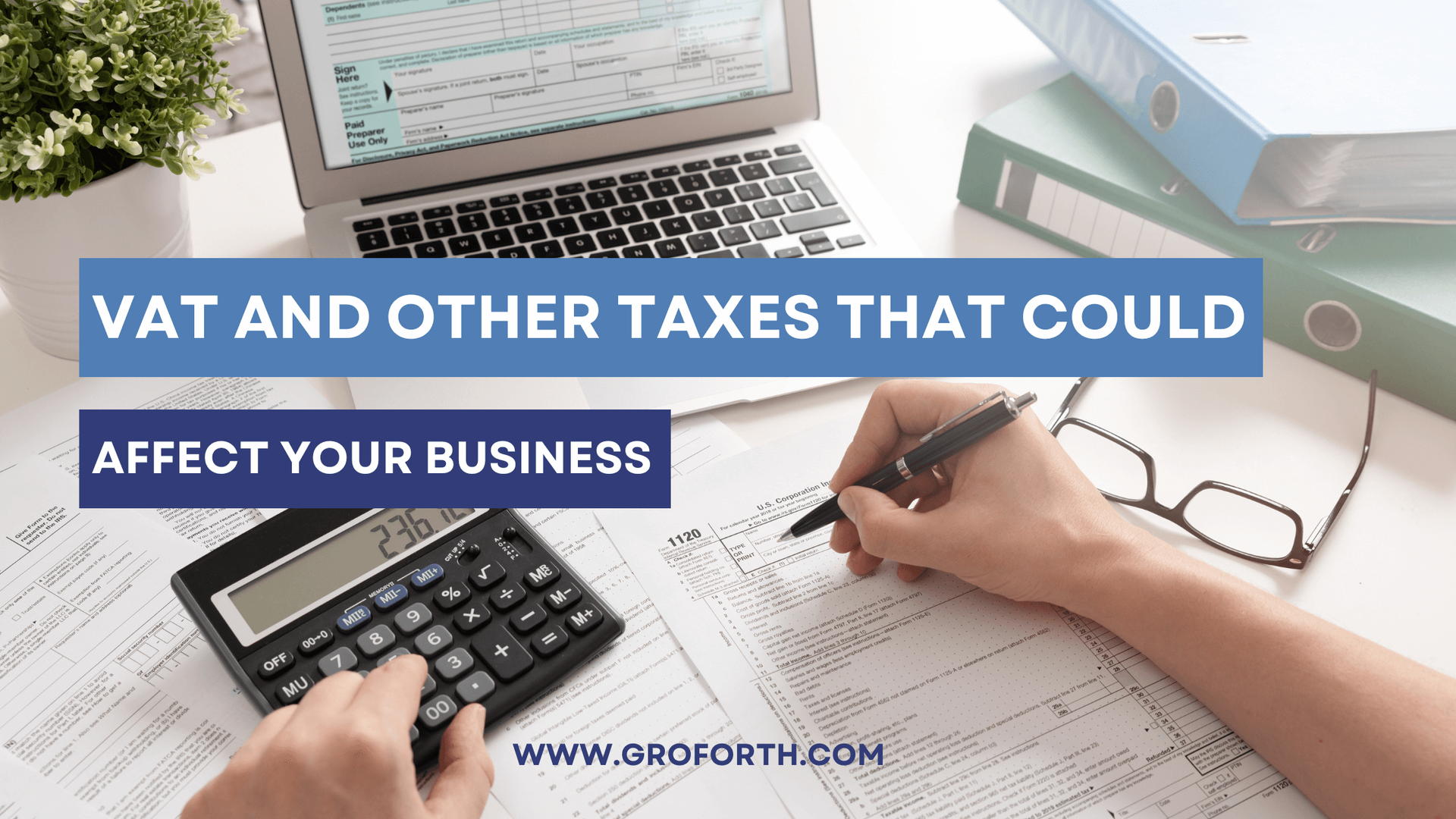Setting Financial Controls for Your Business

While every business needs effective financial controls, many small businesses and SMEs are unsure how to implement them. But what do we mean by effective financial controls and how can they help your business? In this article, GroForth’s Geraldine covers:
• What are financial controls
• Practical examples of financial controls
• How financial controls improve planning and forecasting
• Using financial controls to enhance performance
• What happens if you don’t have good financial controls
What are financial controls?
Financial controls are systems and processes that protect your business and support profitability by:
• improving planning and forecasting,
• enhancing performance,
• aiding compliance, and
• protecting your business against losses and fraud.
What are some practical examples of financial controls?
A basic financial control that every business owner needs to put in place is separating business and personal expenses. This is very important as it helps avoid tax problems. Other practical examples of financial controls include:
• Implementing a reliable accounting system,
• Carrying out regular bank reconciliations,
• Ensuring payroll is operated correctly,
• Prompt invoicing,
• Managing stock/inventory,
• Monitoring debtors,
• Preparing and reviewing budgets
• Managing cashflow,
• Keeping track of assets,
• Checking and authorising expenses and purchases,
• Identifying and managing risks.
How do financial controls improve planning and forecasting?
Effective financial controls enable you to keep track of your business income and expenditure and help you spot potential opportunities and problems as they emerge. Armed with this information, you are better able to keep your business goals realistic and relevant.
While some small businesses still rely on spreadsheets or manual accounting systems, this tends to become unwieldy when activity picks up and the business begins to grow. Relying on spreadsheets also makes it more difficult to generate meaningful management reports to help you run your business.
Consequently, most businesses today use cloud-based solutions like Xero and SortmyBooks. The advantage of these solutions is that once you know how to use them properly and input your data on time, every time, you will have accurate, up-to-date, financial information at your finger tips when planning and making decisions.
This, in turn, ensures:
• Forecasts can be based on accurate, factual data rather than influenced by bias or simply following what was done in the previous year,
• Budgets are realistic and linked to business goals,
• Progress in meeting goals is easier to monitor and problems can be quickly identified and addressed,
• Enhanced efficiency and profitability,
• Compliance with legislation and regulatory requirements becomes easier to manage,
• Easier identification and monitoring of risks.
How do financial controls enhance performance?
As well as enabling you to make better business decisions, effective financial controls also minimise risks such as overdue debts, uncontrolled costs, and running out of cash. This, in turn, helps boost the cash your business has available and/or can borrow for future investment, development and growth.
What happens if I don’t set effective financial controls?
If your business does not set effective financial controls, the problems that can arise include:
• Unauthorised access to your accounts and systems which can lead to error, duplication or gaps in records, and even fraud.
• Late invoicing and overdue debts which can result in running out of cash. There is no point in making lots of sales if you don’t get paid for them.
• Overtrading (taking on more work than you are able to complete),
• Cashflow difficulties,
• Uncontrolled costs.
In the worst situations, weak financial controls can lead to business failure. Often, running out of cash is the first sign a business is about to fail. This is why it is so important to keep a close eye on the financial position of your business at all times. There is still truth in the old saying, ‘cash is king’.
What if I don’t have the resources to implement effective financial controls?
Of course, not every business has the resources to employ a full time bookkeeper or accountant and it can be easy to let financial controls slip when you have many other demands on your time. That is why many businesses outsource their accounts to a specialist bookkeeping and back office accounting service provider like GroForth. If you would like more information about how our team can help you set effective financial controls for your business,
do get in touch. We’d love to hear from you!
GroForth Blog










